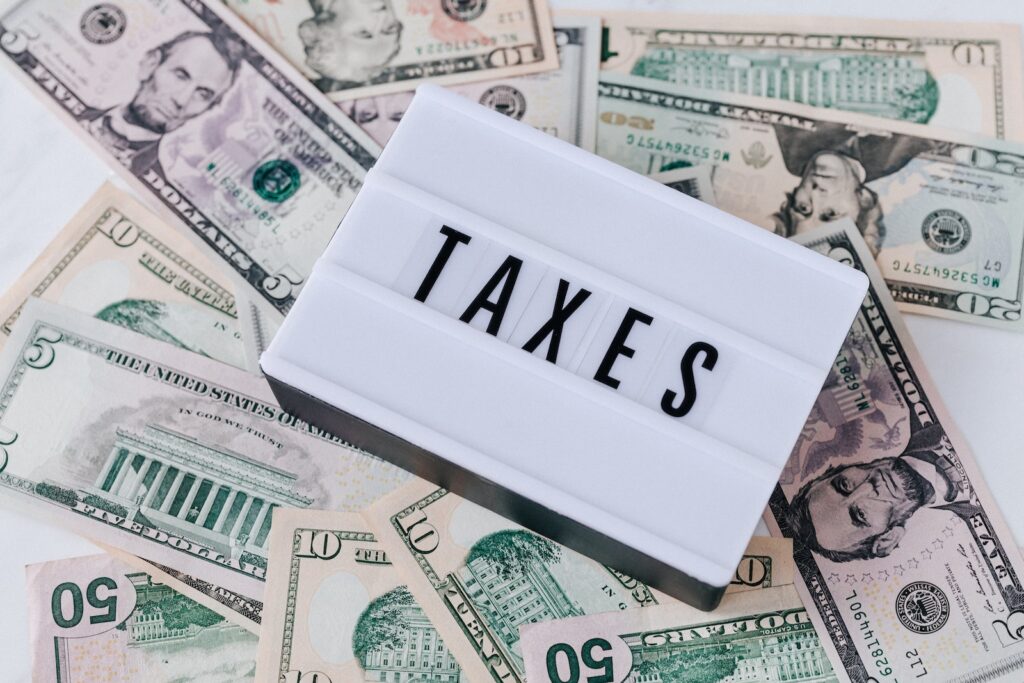Expert Advice on Tax Considerations in Real Estate Investing
Real estate investing can be a smart way to build wealth over time, but it’s important to remember that taxes can have a significant impact on your bottom line. Failing to properly consider the tax implications of your investments can lead to costly mistakes and eat into your profits. In this article, we’ll provide expert advice on tax considerations in real estate investing so you can make informed decisions about your investments and maximize your returns.
From property taxes to capital gains taxes, there are several types of taxes that can apply to real estate investing. Understanding how these taxes work and how they apply to your investments is essential to maximizing your profits and minimizing your tax liability.
Whether you’re a borrower, lender, or real estate investor, this article will provide valuable insights and expert advice on tax considerations in real estate investing.
Why Tax Considerations Matter in Real Estate Investing?
When it comes to real estate investing, taxes are an important consideration that can significantly impact your bottom line. By understanding the tax implications of your investments, you can:
- Maximize your profits by taking advantage of deductions and tax benefits
- Minimize your tax liability by avoiding common mistakes and understanding the tax consequences of different investments
- Ensure compliance with tax laws and regulations to avoid legal issues and penalties
Types of Taxes that Apply to Real Estate Investing
There are several types of taxes that can apply to real estate investing, including:
- Property taxes: Property taxes are taxes that are assessed on real estate by local governments. The amount of the tax is based on the assessed value of the property.
- Capital gains taxes: Capital gains taxes are taxes that are assessed on the profit you make from selling an investment property. The amount of the tax depends on how long you held the property and the amount of profit you made.
- Depreciation recapture taxes: Depreciation recapture taxes are taxes that are assessed on the amount of depreciation you claimed on an investment property when you sell it. The amount of the tax depends on the amount of depreciation you claimed and the amount of profit you made from selling the property.
- State and local taxes: In addition to property taxes, some states and local governments may assess additional taxes on real estate investments.
It’s important to understand how these taxes work and how they apply to your investments in order to make informed decisions about your real estate investments.
Expert Tips for Tax Considerations in Real Estate Investing
Here are some expert tips to help you navigate the tax considerations of real estate investing:
- Keep accurate records: Keeping detailed records of your expenses and income is essential for properly calculating your taxes and taking advantage of deductions. Make sure to keep track of all your receipts, invoices, and other financial documents.
- Consider the tax benefits of real estate investing: Real estate investing offers a number of tax benefits, such as deductions for mortgage interest, property taxes, and depreciation. Make sure you’re taking advantage of all the deductions you’re entitled to.
- Understand the different types of taxes that apply to real estate investing: Depending on the type of property and the way it’s used, you may be subject to different types of taxes. It’s important to understand how these taxes work and how they apply to your investments.
- Consult a tax professional: Real estate investing can be complex from a tax perspective, and it’s important to get expert advice to ensure you’re complying with all applicable laws and regulations. A qualified tax professional can help you navigate the complexities of real estate investing and minimize your tax liability.
By following these expert tips, you can minimize your tax liability and maximize your profits in real estate investing.

Common Tax Mistakes to Avoid
Here are some common tax mistakes that real estate investors make:
- Misclassifying your investments:
- The way you classify your real estate investments can have a significant impact on your tax liability. For example, if you misclassify a property as a personal residence when it’s really an investment property, you may miss out on valuable deductions.
- Not keeping accurate records:
- Keeping detailed records of your expenses and income is essential for properly calculating your taxes and taking advantage of deductions. Don’t rely on your memory to track your finances.
- Not taking advantage of tax benefits:
- Real estate investing offers a number of tax benefits, such as deductions for mortgage interest, property taxes, and depreciation. Make sure you’re taking advantage of all the deductions you’re entitled to.
- Not understanding the tax implications of different types of investments:
- Depending on the type of property and the way it’s used, you may be subject to different types of taxes. Make sure you understand the tax implications of different types of investments before you invest.
- Not keeping up with tax law changes:
- Tax laws and regulations related to real estate investing can change frequently. Make sure you’re staying up to date on any changes that may affect your investments.
- Not consulting a tax professional:
- Real estate investing can be complex from a tax perspective, and it’s important to get expert advice to ensure you’re complying with all applicable laws and regulations. A qualified tax professional can help you navigate the complexities of real estate investing and minimize your tax liability.
By avoiding these common mistakes, you can minimize your tax liability and maximize your profits in real estate investing.
Examples
Here are some examples of how tax considerations can impact your real estate investments:
- Mortgage interest deductions: By taking advantage of deductions for mortgage interest, you can reduce your tax liability and increase your cash flow from rental income.
- Depreciation: By properly claiming depreciation on your investment properties, you can reduce your tax liability and increase your profits when you sell the property.
- 1031 exchanges: By using a 1031 exchange, you can defer paying capital gains taxes on the sale of an investment property by reinvesting the proceeds into another property.
These are just a few examples of how tax considerations can impact your real estate investments. By understanding the tax implications of your investments and taking advantage of all the available deductions and tax benefits, you can maximize your profits and minimize your tax liability.
Expert Advice for Tax Considerations in Real Estate Investing
Real estate investing can be a complex and challenging endeavor, especially when it comes to tax considerations. By following the expert advice outlined in this article and avoiding common mistakes, you can minimize your tax liability and maximize your profits. Make sure to keep accurate records, understand the different types of taxes that apply to real estate investing, take advantage of tax benefits, and consult a tax professional to ensure compliance with tax laws and regulations.
Now that you have a better understanding of the tax considerations in real estate investing, what steps will you take to ensure you’re making informed decisions about your investments? Consider consulting with a qualified tax professional to help you navigate the complexities of real estate investing and minimize your tax liability. Remember to keep accurate records, understand the different types of taxes that apply to real estate investing, and take advantage of all the available deductions and tax benefits.
By following these expert tips and avoiding common mistakes, you can maximize your profits and achieve long-term success in real estate investing.
